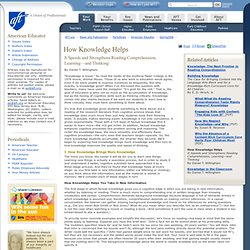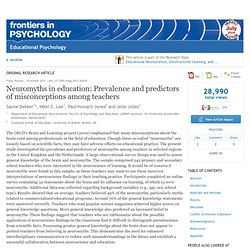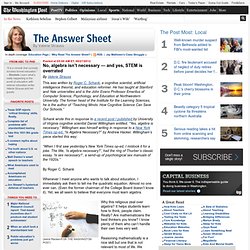

BBC Radio 4 - All in the Mind, Neuromyths in schools; psychosis and prisons; the case of HM. How Knowledge Helps. It Speeds and Strengthens Reading Comprehension, Learning—and Thinking By Daniel T.

Willingham "Knowledge is Good. " Neuromyths in Education: Prevalence and Predictors of Misconceptions among Teachers. Introduction There is widespread interest among teachers in the application of neuroscientific research findings in educational practice.

Neuroscientific research has received a lot of attention since 1990–2000, which was declared the “Decade of the Brain” in the United States. Yet, the field of neuroscience is complex and the accurate transfer of research findings to the classroom is often difficult (Jolles et al., 2005; Devonshire and Dommett, 2010; Ansari et al., 2011). Paul Tough on How Children Succeed. Washington Post. This was written by Roger C.

Schank, a cognitive scientist, artificial intelligence theorist, and education reformer. He has taught at Stanford and Yale universities and is the John Evans Professor Emeritus of Computer Science, Psychology, and Education at Northwestern University. The former head of the Institute for the Learning Sciences, he is the author of “Teaching Minds: How Cognitive Science Can Save Our Schools.” Schank wrote this in response to a recent post I published by University of Virginia cognitive scientist Daniel Willingham entitled, “Yes, algebra is necessary.”